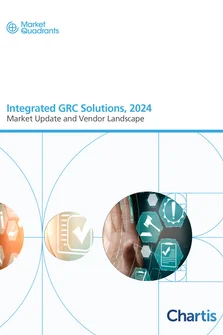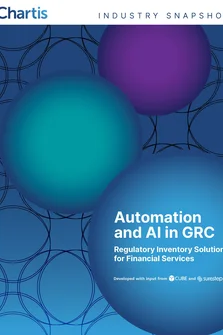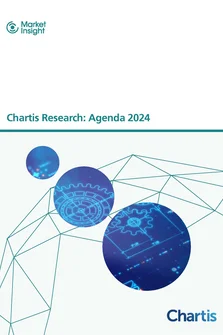<p>Global fines for conduct-related failures reached over $250 billion from 2009-2013. Driven by regulation from around the world, and following on from scandals such as payment protection insurance (PPI) mis-selling, and the LIBOR rate-fixing scandal, there is an increased global focus on the behavior of banks with respect to their customers. In conjunction with a growing awareness of the dangers of the reputational fallout that comes with these kinds of failures, conduct risk is growing in importance. Financial institutions are beginning to examine how to define and manage this risk across the enterprise, from the establishment of culture and governance processes, to the implementation of new technology platforms.</p>
<p><strong>Conduct risk management is largely driven by regulation, but compliance should not be the primary focus of institutions.</strong> The regulatory drivers of conduct risk are the focus of many financial institutions’ conduct risk management initiatives, but they should be looked at as being a subset of business requirements - a financial institution with poor conduct risk management processes is not just at risk of regulatory censure, but inefficient business processes and loss of customer trust. In addition, international regulations are still in the process of being established, and conduct risk management platforms should be flexible enough to deal with new regulations as they arise.</p>
<p><strong>Conduct risk management is multi-dimensional,</strong> including process control, training, incentives, analytics, and evidencing as key requirements. Effective management of conduct risk platforms will require both establishment of controls for the overlapping areas of conduct risk, and frameworks for measuring and managing their risks, including qualitative frameworks.</p>
<p><strong>Customer-centric views are becoming increasingly important.</strong> Firms are beginning to move away from a firm-centric approach, and are beginning to place the customer at the center of their conduct risk management platforms. Strategic and technological frameworks are now focusing on ensuring that negative outcomes for customers are not necessarily occurrences which never happen, but that they are explicable and justifiable.</p>
<p><strong>Conduct risk can be managed via the combination of culture and technology. </strong>Effective establishment of measures requires both cultural establishment of good conduct, and definition and assignment of responsibilities. These need to be embedded in the organization, governance, and policies with suitable analytics and metrics.</p>
<p><strong>The vendor landscape reflects the immature nature of conduct risk management.</strong> There are no leading vendors in the conduct risk management landscape, as in this relatively immature discipline most conduct risk management systems are re-purposed operational risk, credit risk or financial crime risk management platforms.</p>
<p><strong>Integrated systems will be the conduct risk management systems of the future.</strong> The vision for the evolution of conduct risk management involves the usage of all enterprise and customer data in an integrated framework, extracting patterns and linking dynamically with rewards and performance metrics. These include big data, pre- configured workflows, and advanced analytics.</p>
<p>This is a new report from Chartis, covering the evolving discipline of conduct risk management. The report covers both the demand and supply-side of the conduct risk management technology market and includes new information on industry trends and business requirements. It covers the main market and regulatory requirements and the vendor landscape.</p>
<p>This report uses Chartis’s RiskTech Quadrant<sup>®</sup> to explain the structure of the market. The RiskTech Quadrant<sup>®</sup> uses a comprehensive methodology of in-depth independent research and a clear scoring system to explain which technology solutions meet an organization’s needs. The RiskTech Quadrant<sup>®</sup> does not simply describe one technology solution as the best conduct risk management solution; it has a sophisticated ranking methodology to explain which solutions would be best for buyers, depending on their implementation strategies.</p>
<p>The report covers the vendors in the Conduct Risk Management space, including Catelas, Empowered Systems, FICO, IBM, MetricStream, NASDAQ OMX BWise, Thomson Reuters, and Wolters Kluwer.</p>
Only users who have a paid subscription or are part of a corporate subscription are able to print or copy content.
To access these options, along with all other subscription benefits, please contact info@risk.net or view our subscription options here: http://subscriptions.risk.net/subscribe
You are currently unable to print this content. Please contact info@chartis-research.com to find out more.
You are currently unable to copy this content. Please contact info@chartis-research.com to find out more.
Copyright Infopro Digital Limited. All rights reserved.
You may share this content using our article tools. Printing this content is for the sole use of the Authorised User (named subscriber), as outlined in our terms and conditions - https://www.infopro-insight.com/terms-conditions/insight-subscriptions/
If you would like to purchase additional rights please email info@chartis-research.com
Copyright Infopro Digital Limited. All rights reserved.
You may share this content using our article tools. Copying this content is for the sole use of the Authorised User (named subscriber), as outlined in our terms and conditions - https://www.infopro-insight.com/terms-conditions/insight-subscriptions/
If you would like to purchase additional rights please email info@chartis-research.com


